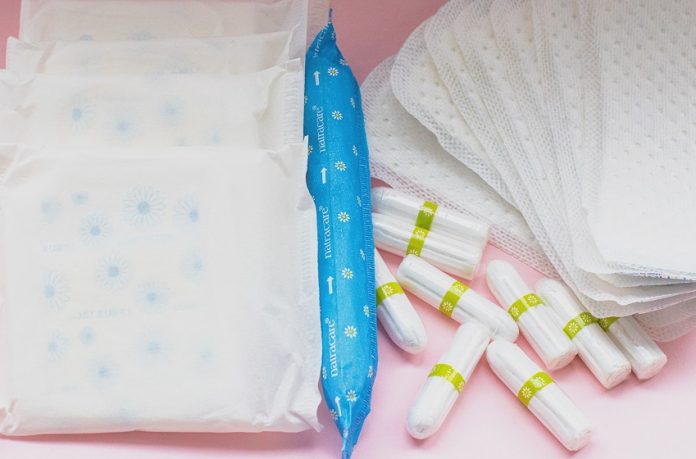Most women say that their menstrual cycle affects their sleep somehow, but not everyone agrees with them. At least three to six days before having a period, most females have trouble sleeping. Sleep issues could be due to Premenstrual Syndrome (PMS).
The first step is to track a three-month record to see if the sleep problems are due to the menstrual cycle. Let’s see some details about the effects of the menstrual cycle on sleep.
Sleep and Menstrual Cycle, What’s the Link?
PMS never stops making us angry, frustrated, and more stressed out during our cycle. PMS could also cause our tossing and turning, so we are tired. A study by the Sleep Health Foundation says that 7 out of 10 women say their sleep habits change before their period. The most common times are 3-6 days before.
During this time, progesterone levels drop. This is why women who have PMS have the worst sleep. Progesterone’s job is to rise after ovulation and fall closer to when you have your period to get the body ready for a pregnancy. Some women have so many bad PMS symptoms that they can’t sleep at night. Getting to bed early the week before your period can help you get extra sleep.
You should consult a Gynecologist if you are constantly facing sleep issues. You can book an appointment with the Best gynecologist through Marham.
Causes of Disturbed Sleep During or Before Menstruation
There are various reasons which can disturb the sleep cycle during or just before your menstruation. Some of them are described below.
Normal Menstrual Problems
Though hormones are usually to blame for our lousy sleep, sometimes it’s just our monthly cramps and other symptoms that are causing us not to get a good night’s sleep.
It can be hard to get to sleep when you have menstrual problems like:
- Cramps
- Bloating
- Headaches
- Heavy bleeding
- Pain
Understandably, some women have a hard time getting to sleep because their uterus cramps all the time. It would be like anyone else if they had severe cramps in any other body part.
Helpful Tips:
- Take a hot water bottle to bed with you.
- If you’re having trouble sleeping, take over-the-counter painkillers like paracetamol or ibuprofen.
- Don’t stay up all night when you can take a painkiller and get some extra sleep.
The Rise in Body Temperature
Your “basal body temperature” is the lowest body temperature you can get while resting. This level can change during certain parts of your menstrual cycle, like ovulation. The temperature drops because the body is getting ready to release an egg during ovulation. Many progesterone is released when the egg is released, which raises the body’s temperature.
The Sleep Foundation says that our core temperature rises by about half a degree. This may not seem like a lot, but if you’ve ever tried to sleep in the summer heat or had night sweats, you’ll understand why this can bother you.
Helpful Tip: Keep your bedroom cool and sleep in thinner pajamas with a lighter duvet to keep the heat out. It’s best to sleep in a room between 60 and 67 degrees Fahrenheit. A warm bath or shower before bedtime can also make you feel sleepy. As your body warms up in the water, it quickly cools down when you go to bed to fall asleep faster.
Lack of REM Sleep
When we start to dream, we’re in REM sleep, also called Rapid Eye Movement sleep. This is when we get the deepest and most restful sleep. People who don’t get enough REM sleep will be less rested in the morning. It’s good for both the body and the brain. Studies show that women who have a lot of PMS symptoms don’t get as much REM sleep as they used to, which makes them tired when they wake up.
Helpful Tip: if you know you won’t be able to focus during the day because you won’t be getting enough sleep while on your period. Try to plan non-important tasks for these days so you can relax a little.
Premenstrual Dysphoric Disorder (PMDD)
PMDD is a more severe form of PMS that can cause depression and anxiety much worse than usual. During these cases, sometimes the body doesn’t respond to melatonin when it’s in the luteal phase, making it hard to sleep well. The less sleep we get, the worse we feel, which makes us less sleepy, and so on.
If you have PMDD, you should talk to a Best Gynecologist about what they can do to treat it. If you are talking to your doctor about this, be sure to mention any sleep problems so they can help.
Higher Estrogen Levels
After your period, you might be able to get some good sleep for a few nights in a row. This is when your body is more likely to respond to the melatonin in your body, which is the hormone that makes us go to sleep. A rise in estrogen levels comes after this phase. This means that our sleep will be messed up again, just like it was before. Women who are menstruating can’t take a day off. So, taking the combined contraceptive pill, which stops you from ovulating, is one of the best ways to get rid of your PMS symptoms.
Many things can happen when you don’t get enough sleep. At the very least, it can be annoying, and at the very worst, it can be hazardous.
FAQs
1. What are the effects of sleep deprivation on the period cycle?
Research shows that individuals who get fewer than six hours of sleep are 44 percent more likely to have irregular periods.
2. Should you sleep more when you’re menstruating?
PMS can make some women sleep more than usual because they are more tired. Around their period, their moods may change, like more depression. This can make them sleep too much (hypersomnia).
3. How can I get a good night’s sleep during menstruation?
- Set up a healthy sleep schedule.
- Don’t use a lot of screen time before bed.
- Use heating pads to get rid of the pain.
- Use Medication










